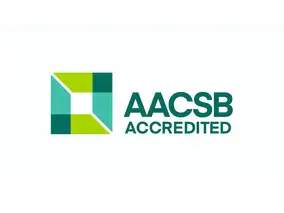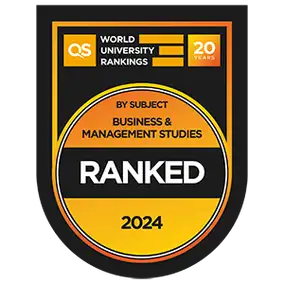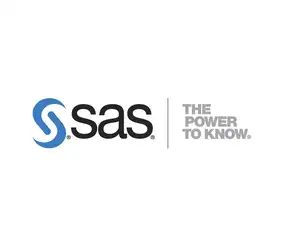Type of qualification
Level of study
Once you’ve graduated with a bachelor’s degree – or have equal experience – you can study at the postgraduate level. Doctoral qualifications require additional entry requirements.
Our courses follow the New Zealand Qualification Framework (NZQF) levels.
Time to complete
International students
International students are not New Zealand citizens or residents.
Study a Master of Analytics – MAnalyt
Massey’s Master of Analytics will equip you with technical ability and competence in devising data-driven solutions. These are the skills needed to transform massive amounts of data into insights that enable better decision making and innovation both in the private and public sectors.
Businesses and organisations today collect unprecedented amounts of detailed data. They can use this to become more competitive through greater efficiencies and new product creation. But in practice, the sheer volume of information is often overwhelming.
The Master of Analytics will help you understand all these things, as well as give you training in communicating your findings in a compelling way to a business audience. Your study will cover fundamental data analysis tools, including machine learning, data mining, statistics, and econometrics.
In the last phase of study, you will complete an applied analytics project, where you will address a real-world problem in collaboration with an organisation. We also give you training in communicating your findings in a compelling way to a business audience.
Gain globally recognised industry certification
The Master of Analytics is supported by the world's leading business analytics software provider - SAS. Students earn the globally recognised SAS Academic Specialisation, which recognises knowledge learnt that further enhances a graduate’s industry skills. The Specialisation supports students to prepare to work in a data-rich business environment and documents students’ coursework using SAS’ award-winning software to solve real-world business problems. Massey University was the first New Zealand university to offer the SAS Academic Specialisation.
Latest theory, technology and practical learning
Your course of study in the Master of Analytics will cover the fundamental theoretical concepts in analytics as well as the latest and cutting-edge technologies in the industry such as Python and R, together with SQL.
You will then learn how these tools are applied in a specialisation of your choosing. In the last phase of study you will complete an applied analytics project, where the knowledge and skills you have learnt will be utilised to address a real-world problem in collaboration with an organisation.
Insights
- The 2020 Student Experience Survey results for this programme found that 83% of students on this programme believed assessment tasks challenged students to learn, 87% believe that the programme has given them excellent “knowledge of the field you are studying”, and 79% highlight that the programme has given them “critical thinking skills”.
- The 2020 Graduate Destination Survey results for this programme found that 75% of graduates are in employment and 50% have continued in further study. The most common industry graduated students were working in was “Finance and Insurance Services”. Respondents indicated that 100% were earning above the New Zealand median national salary.
- Between 2018 and 2021 the average number of students enrolled in the programme was 86 (headcount) and across the whole programme, 88% of courses were successfully completed during 2020.
A MAnalyt is a good fit if you:
- already have a bachelor’s degree in a related subject and looking to upskill
- want to future-proof your career and increase your employment prospects with big data skills
- would like real-world skills that make you industry-ready immediately upon completion of your study.
Entry requirements
Admission to Massey
All students must meet university entrance requirements to be admitted to the University.
Specific requirements
To enter the Master of Analytics you will:
- have sufficient background in statistical analysis tools to satisfy the programme coordinator that you have the capacity to undertake the qualification; and
- have been awarded or qualified for a bachelor’s degree in a relevant subject, with a minimum B- grade average in the higher level courses, or equivalent: or
- have been awarded or qualified for a bachelor’s degree, and have completed at least two years' experience in a relevant field of work or professional activity, or equivalent.
You will provide the following documents:
- copies of all official academic transcripts for studies taken at all universities other than Massey University.
- a current CV showing all relevant work experience with statistical software.
English language requirements
To study this qualification you must meet Massey University's English language standards.
Time limits for Honours, Distinction and Merit
Where your qualification is completed within the stated time limit and to a high standard, you may be able to graduate with Distinction or Merit.
- Look for information under ‘Student Progression’ in the General Regulations for Postgraduate Degrees, Postgraduate Diplomas and Postgraduate Certificates.
- Contact us through the Get advice button on this page if you have any questions.
Prior learning, credit and exemptions
For information on prior learning, exemptions and transfer of credit or other questions:
- review the Recognition of Prior Learning regulations
- contact us through the Get advice button on this page.
English language skills
If you need help with your English language skills before you start university, see our English for Academic Purposes (EAP) courses.
Maximum time limits for completion
There are maximum time limits to complete postgraduate qualifications. If you do not complete within the maximum time, you may be required to re-apply for the qualification if you wish to continue your studies.
Official regulations
To understand what you need to study and must complete to graduate read the official rules and regulations for this qualification.
You should read these together with all other relevant Statutes and Regulations of the University including the General Regulations for Postgraduate Degrees, Postgraduate Diplomas, and Postgraduate Certificates.
Returning students
For returning students, there may be changes to the majors and minors available and the courses you need to take. Go to the section called ‘Transitional Provisions’ in the Regulations to find out more.
In some cases the qualification or specialisation you enrolled in may no longer be taking new enrolments, so may not appear on these web pages. To find information on the regulations for these qualifications go to the Massey University Calendar.
Please contact us through the Get advice button on this page if you have any questions.
Structure of the Master of Analytics
If you study full-time, you’ll take 120 credits per year or 60 credits per semester.
The Master of Analytics is a parts-based qualification. That means you must complete the first part, before moving to the second.
For progression from Part One to Part Two, you must have maintained a B- grade average over the core compulsory courses undertaken in Part One.
Complete in one year (12 months)
It is important to note that the MAnalyt programme is specifically designed to be started in Semester 1 with the core pillars of statistics, data mining and econometrics. The specialist subject courses in Semester 2 allow students to apply the skills learnt in Semester 1 and extend these into their business area of interest. Finally, students will integrate all skills in the applied project in Summer School.
Practicum
115801 Applied Analytics Project (60 credits)
Or:
115802 Applied Analytics Project Part 1 (30 credits) and
115803 Applied Analytics Project Part 2 (30 credits)
Courses and specialisations
Key terms
- Courses
- Each qualification has its own specific set of courses. Some universities call these papers. You enrol in courses after you get accepted into Massey.
- Course code
- Each course is numbered using 6 digits. The fourth number shows the level of the course. For example, in course 219206, the fourth number is a 2, so it is a 200-level course (usually studied in the second year of full-time study).
- Credits
- Each course is worth a number of credits. You combine courses (credits) to meet the total number of credits needed for your qualification.
- Specialisations
- Some qualifications let you choose what subject you'd like to specialise in. Your major or endorsement is what you will take the majority of your courses in.
Credit summary
180 credits
- Part One compulsory core courses – 60 credits
- Part One subject courses – 60 credits
- Part Two project course – 60 credits
- Approved practica and associated reports
A specialisation (subject) is compulsory and requires 120 credits, including the Applied Analytics project.
There are regulations around completion of Part One before progressing to Part Two.
Course planning key
- Prerequisites
- Courses that need to be completed before moving onto a course at the next level. For example, a lot of 200-level courses have 100-level prerequisite courses.
- Corequisites
- Courses that must be completed at the same time as another course are known as corequisite courses.
- Restrictions
- Some courses are restricted against each other because their content is similar. This means you can only choose one of the offered courses to study and credit to your qualification.
Part One
Core compulsory courses
Course code: 158739 Data Mastery: Scripting, Databases and Data Privacy 15 credits
An introduction to the field of analytics, including the process of identifying an analytics problem in context, identifying sources and acquiring data, preparing data for analysis to address the problem. Emphasis is placed on developing programming skills relevant for data processing and data retrieval from databases. Special attention is given to privacy, security and ethical considerations surrounding data, and to communication of results.
View full course detailsCourse code: 161762 Multivariate Analysis for Big Data 15 credits
Research methods suitable for the analysis of big datasets containing many variables. The fundamentals of data visualisation, customer segmentation, factor analysis and latent class analysis with examples taken from business and health fields. Emphasis will be placed on achieving a conceptual understanding of the methods in order to implement and interpret the outcomes of multivariate analyses.
View full course detailsCourse code: 161777 Practical Data Mining 15 credits
A practical approach to data mining with large volumes of complex data; prepare, cleanse and explore data; supervised and unsupervised modelling with association rules and market basket analysis, decision trees, multi-layer neural networks, k-nearest neighbours, k-means clustering and self-organising maps, ensemble and bundling techniques, text mining; use of leading software tools; business examples and research literature.
View full course detailsCourse code: 178724 Applied Econometric Methods 15 credits
This course covers the specification, estimation and validation of econometric models for analysis and forecasting, incorporating in-depth discussions regarding the treatment of common problems encountered in data analysis.
View full course detailsSubject courses
Some qualifications let you choose what subject you'd like to specialise in. Your major or endorsement is what you will take the majority of your courses in.
A subject is compulsory. To complete a subject in the Master of Analytics requires 120 credits in specified areas.
Business
Gain an industry-recognised and highly sought-after qualification in data analytics. Become a technology leader with the practical skills to innovate and propel businesses forward with data-driven insights.
Health
Join this unique qualification to become a leading, sought-after analyst and disseminator of critical health-related data.
Part Two (Choose 60 credits from)
Course code: 115801 Applied Analytics Project 60 credits
Under the supervision of academic staff, students work with an external organisation on the application of computer-based analytics tools to a project in the domain of business analytics, healthcare system analytics, or public policy analytics. Special attention is given to privacy and ethical considerations, and to the (visual) communication of results.
View full course detailsCourse code: 115802 Applied Analytics Project Part 1 30 credits
Under the supervision of academic staff, students work with an external organisation on the application of computer-based analytics tools to a project in the domain of business analytics, healthcare system analytics, or public policy analytics. Special attention is given to privacy and ethical considerations, and to the (visual) communication of results.
View full course detailsCourse code: 115803 Applied Analytics Project Part 2 30 credits
Under the supervision of academic staff, students work with an external organisation on the application of computer-based analytics tools to a project in the domain of business analytics, healthcare system analytics, or public policy analytics. Special attention is given to privacy and ethical considerations, and to the (visual) communication of results.
View full course detailsFees and scholarships
Fees, student loans and free fees scheme
Your tuition fees may be different depending on the courses you choose. Your exact fees will show once you have chosen your courses.
There will also be some compulsory non-tuition fees and for some courses, there may also be charges for things such as study resources, software, trips and contact workshops.
- Get an estimate of the tuition fees for your qualification
- View a list of non-tuition fees that may be payable
Already know which courses you're going to choose?
You can view fees for the courses that make up your qualification on the course details pages.
Student loans (StudyLink) and Fees Free scheme
You may be eligible for a student loan to help towards paying your fees.
The New Zealand Government offers fees-free tertiary study for eligible domestic students. Find out more about the scheme and your eligibility on the Fees Free website. To use the site's eligibility checking tool, you will need your National Student Number.
Current and returning Massey students can find their National Student Number in the student portal.
- Student loans (StudyLink)
- Fees Free
- Student portal
Scholarship and award opportunities
Find more scholarships and awardsFees disclaimer
This information is for estimation purposes only. Actual fees payable will be finalised on confirmation of enrolment. Unless otherwise stated, all fees shown are quoted in New Zealand dollars and include Goods and Services Tax, if any. Before relying on any information on these pages you should also read the University's Disclaimer Notice.
Careers and job opportunities
Graduates with analytical skills, and the ability to apply those skills to real-life situations, are in very high demand across all industry sectors. Professional services firms and government agencies also seek specialists in this field.
Sought-after by employers
The skills you will learn in the Master of Analytics meet the growing demand for graduates capable of harvesting, processing, analysing and presenting data in ways that encourage informed and effective organisational decision making. You will learn how to extract useful information from big data, while maintaining data security and privacy.
This will open up to you the increasing number of roles for people who can combine business skills with data analysis and who have excellent communication skills.
International trends are for employers to reward postgraduate study well, especially in larger enterprises. The skills you learn are increasingly recognised as setting you apart from other potential employees.
A skills shortage waiting to be filled
LinkedIn’s 2020 Emerging Jobs Report lists Data Scientist and Artificial Intelligence Specialists as being the top three professions for the last three years. This trend is likely to continue throughout the changing landscape and disruptions in the job market.
Data scientists are in high demand because they:
- innovate new products
- drive greater efficiency in profitability in competitive environments
- enable management to make better decisions
The skills you learn at Massey University and the qualification you will receive are recognised throughout the world and enable you to work in any industry or government sector.
Earn more
A 2017 Ministry of Education publication The post-study earnings and destinations of young domestic graduates, found that in New Zealand:
- Young master’s graduates earn more than one and a half times more than the national median (five years after study)
- Earnings and employment rates increase with the level of qualification completed
- Five years after completion, the median earnings of young master’s graduates are 15% higher than for those with a bachelor’s degree.
What our students say
“I've benefited a lot from the connections made, and the applied learning at Massey Business School. It's important to remember that you need these connections to expand your career opportunities. After graduating, I've been asked to come back and share my experiences from the workplace, and how the skills developed at Uni can be applied in the real world.”

Accreditations and rankings

Association to Advance Collegiate Schools of Business (AACSB)
Massey Business School is rated in the top 5% of global business colleges by AACSB International.

QS Ranking - Business Management Studies
Massey University is ranked by QS (Quacquarelli Symonds) as one of the top 400 universities for business and management.

SAS Analytics
Graduates of our Master of Analytics receive the globally recognised SAS certification.
Useful planning information

Key information for students
Compare qualifications and academic information across different New Zealand institutions. Learn more on careers.govt.nz
